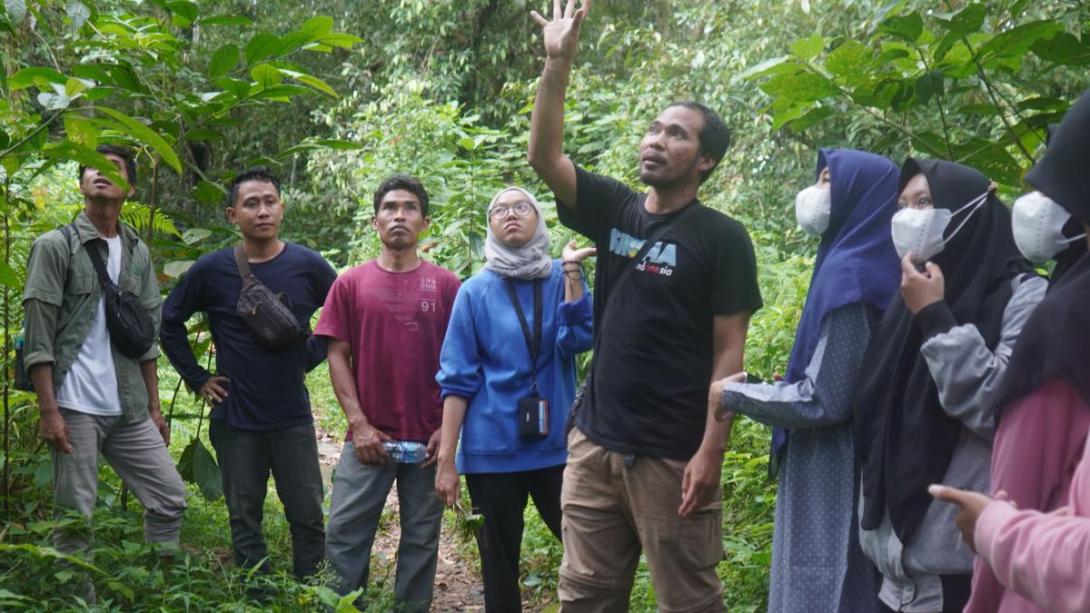
“Some of our participants were illegal hunters—now, they are eco-guides, tree managers, and cooking class facilitators. That transformation is our biggest success.”\
The Purpose of this project is to enable local Community and Illegal Hunters conserve the Rinjani forest, protect flora and fauna through the development of Rinjani Ecotourism.
Main Objectives:
- Understanding forest ecosystem and sustainable conservation
- Creating Rinjani Flora-Fauna Booklet
- Making Video of Flora and bird watching tour
- Developing skill tour guide and tree adoption management
- Developing skill outbound activities and traditional cooking class.
Yogi Sugandi’s action project focused on conserving the Rinjani forest by engaging local communities and former illegal hunters through the development of community-based ecotourism in southern Lombok. The project delivered a series of workshops, field training sessions, and ecotourism activities aimed at transforming participants—many of whom were forest encroachers—into conservation champions. With the support of Lombok Sustainable Tourism and the Rinjani National Park Authority, the project provided training in forest ecosystem awareness, tour guiding, tree adoption, bird-watching, and traditional cooking.

The project achieved notable impact despite challenges like COVID-19, bad weather, and logistical delays. It included a two-day all-participant workshop, skill-building activities on flora-fauna interpretation, tree nursery management, cooking classes, and outbound training. A key innovation was the creation of a tree adoption program, supported by an ongoing collaboration with village governments and park authorities. Participants—including former hunters—built eco-campsites, developed tour packages, and began earning income from nature-based tourism. Local regulations and traditions, such as planting trees during marriage, were also revisited and reinforced.
Although some components like bird-watching documentation and a flora-fauna booklet were only partially completed, the project succeeded in fostering long-term conservation awareness and opening new livelihoods for marginalized groups. Seven former hunters committed to cease illegal activities, and village leaders began allocating budgets to support ecotourism. Yogi’s initiative has strengthened local partnerships, brought community development to the forefront of conservation, and positioned youth and women as key actors in sustainable tourism.

